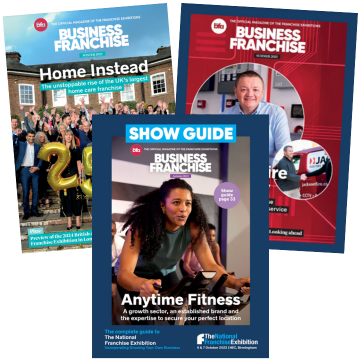An interview for an empire

Impress the bank manager with these CV and interview tips that will ensure you gain the financial support you need. NatWest's Kevin Noble reports
The key to gaining funding is the business plan and the financial projections. However, in many cases, it is clear that whilst the franchisee has invested a considerable amount of time highlighting the benefits and strengths of a franchise, they tend to forget arguably the most important area - themselves.
How can I demonstrate that I am the right person for the franchise?
Simply put - the individual's personal skills and ability to manage their personal finances is key. These areas are vital in assessing any lending application and will help to speed up decisions. It is also worth mentioning that these two considerations will also be extremely useful to the franchisor as they will be asking themselves whether the person sitting in front of them has the drive and commitment to complement the training and support that will be provided and, equally, to understand whether there are any financial pressures in the background that might affect the future of the business or their ability to raise finance.
How can I demonstrate that I will add value to the franchise and ensure business success?
The most straight forward way is to prepare a CV. However, it is extremely important to consider the content. A bank is not looking for pages and pages of achievements, but facts that will add weight to the application. Whilst historic qualifications are important, the franchisee should explain how these
will provide additional benefit to the franchise operation.
Identify your key personal skills such as attention to detail, meeting deadlines, team skills, people skills and sales skills. However, don't just leave it there. Expand on these with examples of previous roles, situations and vocations where you have used these skills to good effect.
If you have run a business before, highlight this fact, but also provide evidence of the success of the enterprise with historical trading accounts and achievements such as awards, tenders won, cost savings or press articles.
How can I demonstrate my financial strengths?
There are four key areas - financial housekeeping, contribution, living costs and assets and liabilities. You do not need to be an accountant or previous business owner to demonstrate that you can keep on top of your finances and this in turn can be transferred to your business. The easiest way to demonstrate this is to present the bank with statements relating to your existing banking accounts.
In general, if you are not a customer of the bank you have approached, you will be asked to provide personal bank statements for the last six months. There is nothing untoward with this request and the bank is simply looking to understand how you operate the account, whether there are any problems with your monthly bills, unpaid cheques or unauthorised overdrafts.
Your ability to provide the contribution or cash stake that is required to get your business off the ground needs careful consideration. In many instances, banks will agree the borrowing, only to find out that the franchisee has no cash available of their own, despite assurances that they do. As a general rule of thumb, a bank with a dedicated franchise team will provide funding up to a maximum level of 70 per cent of the total start-up costs and working capital.
Initially, you must calculate the total of all expected costs, including VAT and verify this with the franchisor. You will then be able to decide whether you can come up with at least 30 per cent. From a bank's perspective, where these funds have come from, ie, savings, family or borrowed funds is extremely important. In many instances, a bank will not accept contribution that has been borrowed elsewhere, as you will have the pressure of not only meeting the bank loan commitment, but also that of your contribution. A franchisor will also wish to understand this, before investing time and effort in the recruitment process.
When looking at projections, the bank is expecting the new business to demonstrate that it can meet both its loan repayments and the franchisees salary. The latter is very important, but is often over looked within the business plan. This is the amount that the franchisee will need to take from the business to meet their living expenses, household bills and spending money. Most banks will provide an income and expenditure statement that you can complete and this provides an accurate assessment as to whether the business can indeed sustain the lifestyle that you are seeking. It should also take account of other incomes that the family receives.
All banks will need to understand and verify how much debt you have in comparison to the assets that you own, ie, HP, personal loans, mortgages and credit cards against the value of your property. To make this as easy as possible, most banks will provide you with an asset and liability form that you can complete. The secret is to be up front and ensure that you include all items. It is also worth confirming the repayment profile on any finance, ie, the monthly amount, how many payments are left and whether the interest rates are fixed or variable.
A bank does not ask what assets you have simply to see if there is security available. It is as important to understand whether you have accumulated more assets than debt and how they compare.
Finally, if you believe you may have any adverse credit, make the bank aware of this at the outset. It is better for you to tell them, rather than they uncover it for themselves. If in doubt, obtain a copy of your own credit report prior to approaching the bank for finance.
You may also be interested in...




